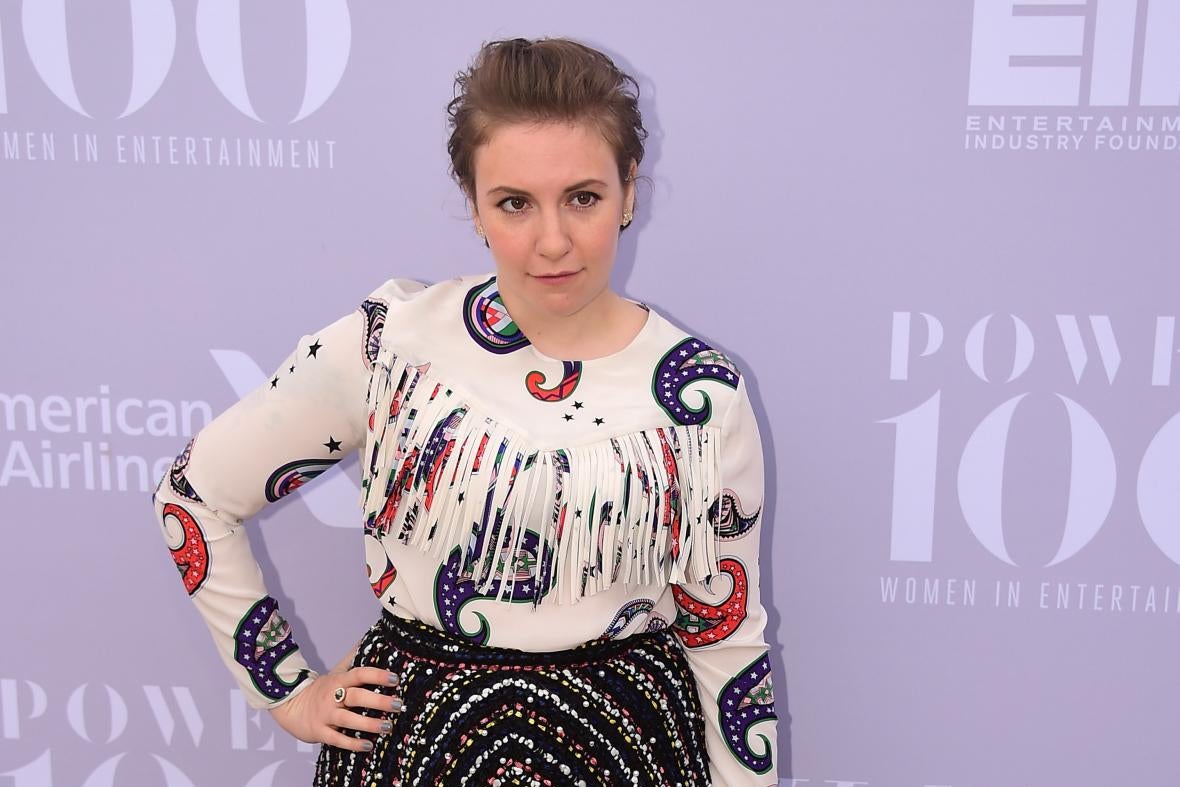In the March 8 edition of her newsletter Lenny, Lena Dunham announced that she will no longer allow magazines to photoshop her image. “I am done,” she wrote, in an essay wryly called “Retouched by an Angel,” “with allowing images that retouch and reconfigure my face and body to be released into the world. The gap between what I believe and what I allow to be done to my image has to close now.”
Dunham says she arrived at this decision last week, after encountering a picture of herself on the cover of a Spanish magazine, her chin sculpted, her limbs lengthened, her “mottled” complexion made pale and luminous. “I don’t recognize my own fucking body anymore,” she wrote. But the Photoshop issue is one that’s dogged Dunham’s career since 2014, when a sleek, attenuated version of her appeared on the cover of Vogue magazine and Jezebel offered $10,000 for the un-retouched pictures. Jezebel incurred a lot of wrath, and Dunham put out a statement defending her choice. (“Vogue isn’t the place that we go to look at realistic women,” she said. “Vogue is the place that we go to look at beautiful clothes and fancy places and escapism.”) At the time, Slate championed Jezebel on the grounds that they were shaming Vogue, not Dunham, who appeared in her natural and unassisted loveliness every week on Girls. But we also criticized Dunham for eliding the fantasy of “beautiful clothes and fancy places” with punishing body standards. Why couldn’t she participate in Annie Leibovitz’s luxuriant dream as a woman who looks like other women? Wasn’t depicting girls as they are, not as some ad-world jerk wished them to be, the point of her entire brand?
In this week’s dispatch, Dunham addressed the 2014 kerfuffle directly:
When, immediately after my cover was released, the website Jezebel decreed it a Photoshopping atrocity and offered a $10,000 bounty for anyone who could get them the raw photos, I was no less than heartbroken. That was partly because my college self had loved Jezebel for this very trait, a desire to topple the body-image industrial complex with a wink and a cackle. It was and it remains an admirable goal.
But I also asked, “Why me?” All these other actresses and models get to enjoy their subtly perfected fashion spreads without comment. Was I being punished for being different, for having an inherently political body? Was I being called out on the chasm between the goals of my television show and the reality of posing in Vogue in a fancy dress and a support garment? Those were fair lines of inquiry for Jezebel, but it still felt like having the stuffing ripped from my bra at the seventh-grade dance. Would I ever get the chance to just be beautiful, no questions asked?
The phrase “inherently political body” is a fascinating one. On one hand, do any bodies in the public eye not fit that description? But Dunham is right that her body represents a challenge to conventional beauty norms. When she bared it on her juggernaut TV show week after week, she was enacting a small revolution, showing women a different—kinder, freer, better—vision for themselves.
That was why, I bet, the actress’s fans felt so betrayed by her Photoshopped images: not because they didn’t understand the allure of just looking “beautiful, no questions asked,” but because Dunham of all people seemed strong enough to push back. We needed her to talk us out of the fairytale! But if Lena’s Vogue cover contradicted her message, being consistent in that message would have required (and does require) a huge amount of courage. Now that Dunham has taken the nuclear step of forswearing Photoshop, I can see how my initial criticism held her to an unfairly high standard, one that perhaps wouldn’t have felt so urgent to me if I were better able to meet it myself.
Few things are as tender and complicated as a woman’s relationship to shape and weight. In 2014, we wanted Lena Dunham to reject the norms for female beauty that we could not quite exorcise, and were mad when she didn’t. Now she has. I’m really impressed.
